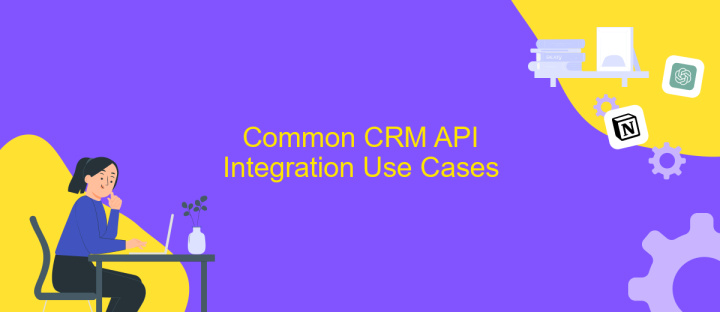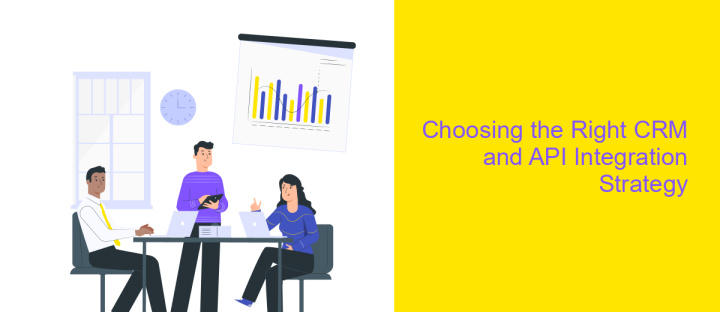CRM With API Integration
In today's fast-paced business environment, Customer Relationship Management (CRM) systems are essential tools for managing interactions with clients and optimizing sales processes. Integrating APIs with CRM platforms enhances their functionality by enabling seamless data exchange between different software applications. This integration not only streamlines workflows but also provides businesses with a comprehensive view of customer data, empowering them to make informed decisions and improve customer satisfaction.
Introduction: The Power of CRM with API Integration
In today's fast-paced business environment, customer relationship management (CRM) systems are essential for maintaining and enhancing customer interactions. However, the true potential of a CRM system is unlocked when integrated with APIs, allowing seamless communication between different software applications. This integration enhances data flow, improves customer insights, and streamlines operations, providing businesses with a competitive edge.
- Enhanced data synchronization across platforms
- Improved customer insights from diverse data sources
- Streamlined business processes and workflows
- Increased automation and efficiency
- Scalable solutions tailored to business needs
By leveraging APIs, businesses can create a more connected and flexible CRM system that adapts to their evolving needs. This integration not only improves customer experiences but also empowers organizations to make data-driven decisions with greater accuracy and speed. As a result, companies can foster stronger relationships with their customers, ultimately driving growth and success in an increasingly competitive market.
Benefits of CRM API Integration

Integrating CRM systems with APIs offers numerous advantages that enhance business operations. Firstly, it facilitates seamless data exchange between different software applications, ensuring that customer information is consistently up-to-date across all platforms. This connectivity not only improves data accuracy but also enables businesses to gain comprehensive insights into customer interactions, leading to more informed decision-making. Additionally, API integration automates repetitive tasks, reducing manual errors and freeing up valuable time for employees to focus on more strategic activities.
Moreover, CRM API integration allows for greater customization and scalability. Businesses can tailor their CRM systems to meet specific needs by integrating with other tools and services, such as marketing automation platforms or financial software. Services like ApiX-Drive simplify this process by offering user-friendly solutions for setting up integrations without extensive coding knowledge. This flexibility ensures that as a business grows, its CRM capabilities can expand accordingly, supporting long-term success. Ultimately, CRM API integration empowers organizations to deliver enhanced customer experiences, fostering loyalty and driving revenue growth.
Common CRM API Integration Use Cases

Integrating CRM systems with APIs has become a pivotal strategy for businesses seeking to streamline operations and enhance customer interactions. By leveraging APIs, companies can connect their CRM platforms with other essential business applications, ensuring seamless data flow and improved functionality.
- Data Synchronization: CRM API integration allows for real-time data synchronization between the CRM and other systems, such as ERP or marketing automation tools. This ensures that all departments have access to the most up-to-date information, improving decision-making and customer service.
- Automated Workflows: With API integration, businesses can automate repetitive tasks and workflows, such as lead scoring or follow-up emails. This not only saves time but also reduces the risk of human error.
- Enhanced Reporting: APIs enable the extraction and consolidation of data from various sources into the CRM, allowing for more comprehensive and insightful reporting. This helps businesses track performance metrics and identify trends more effectively.
Incorporating CRM API integrations is essential for businesses aiming to optimize their customer relationship management processes. By connecting disparate systems, organizations can achieve greater operational efficiency and deliver superior customer experiences.
Choosing the Right CRM and API Integration Strategy

Choosing the right CRM and API integration strategy is crucial for ensuring seamless business operations and maximizing efficiency. A well-integrated CRM system can streamline processes, enhance customer interactions, and provide valuable insights. The first step is to assess your business needs and identify the key functionalities required from a CRM system.
Once you have a clear understanding of your requirements, evaluate various CRM platforms to find one that aligns with your goals. Consider factors such as scalability, user-friendliness, and customization options. Additionally, ensure that the CRM offers robust API capabilities to facilitate smooth integration with your existing systems and third-party applications.
- Identify core business processes that need automation.
- Evaluate CRM platforms based on scalability and customization.
- Ensure the CRM supports comprehensive API integration.
- Consider the ease of use and learning curve for your team.
- Review vendor support and community resources.
Implementing the right CRM and API integration strategy can significantly enhance your business's ability to adapt to changing market demands. By carefully selecting a CRM platform and crafting a tailored integration plan, you position your organization for sustained growth and success.


Conclusion: Future of CRM and API Integrations
The future of CRM systems is intricately linked with the evolution of API integrations, offering unprecedented opportunities for businesses to streamline operations and enhance customer experiences. As organizations continue to adopt digital transformation strategies, the demand for seamless integration of CRM platforms with other business applications will only grow. APIs enable real-time data exchange, fostering a more connected and efficient ecosystem that supports personalized customer interactions and data-driven decision-making.
Tools like ApiX-Drive are revolutionizing how businesses approach CRM integrations by simplifying the process and reducing the need for complex coding. Such platforms empower companies to effortlessly connect their CRM systems with a multitude of applications, ensuring data consistency and operational harmony. As these technologies advance, we can anticipate even greater automation capabilities and intelligent insights, allowing businesses to stay competitive in an ever-evolving market. The synergy between CRM systems and API integrations will continue to drive innovation, making customer relationship management more dynamic and responsive to changing business needs.
FAQ
What is CRM with API integration?
How does API integration benefit a CRM system?
What are some common challenges in CRM API integration?
How can businesses implement CRM API integration effectively?
What should businesses consider when selecting a CRM with API capabilities?
Strive to take your business to the next level, achieve your goals faster and more efficiently? Apix-Drive is your reliable assistant for these tasks. An online service and application connector will help you automate key business processes and get rid of the routine. You and your employees will free up time for important core tasks. Try Apix-Drive features for free to see the effectiveness of the online connector for yourself.

